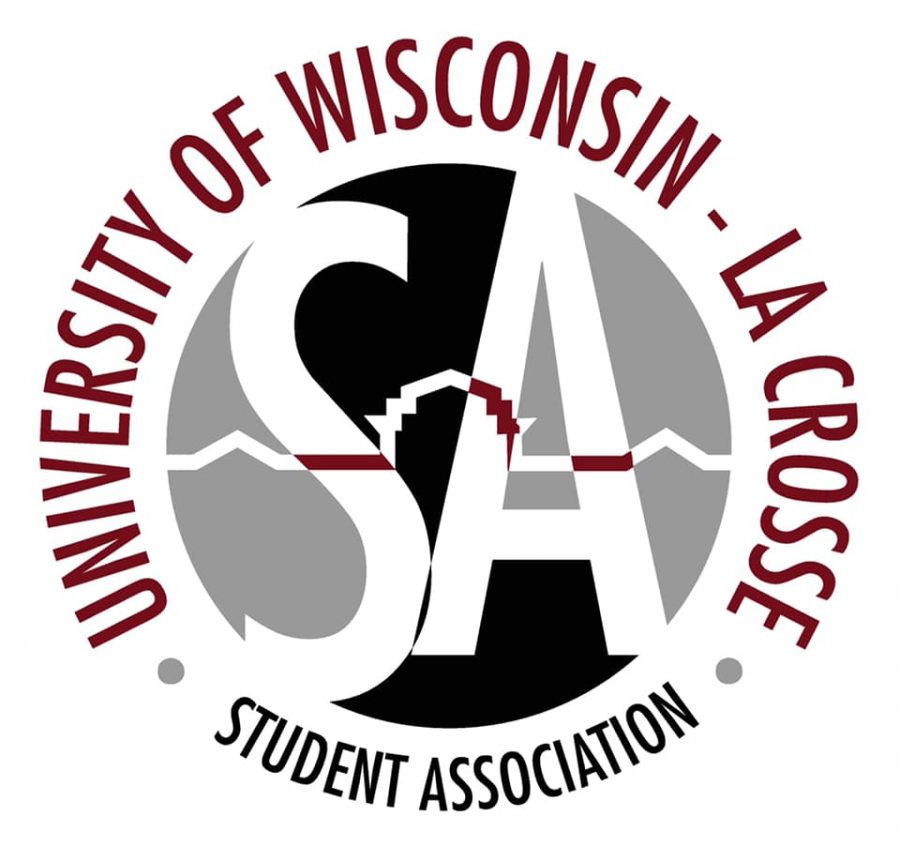Student Senate discusses transgender rights, future seats on the senate, and fund allocation
November 8, 2019
The University of Wisconsin-La Crosse Student Association met in the senate chambers on November 6, 2019 to discuss their stance on transgender rights, the future of the CASSH seat on the student senate, a recent meningitis outbreak on campus, and DREAM fund’s allocation if the program ceases to exist.
The Student Association stood for transgender rights, as a grand majority of the senators stood with signs that said, “Trans Lives Matter,” “No More,” “We Stand for Our Trans Family” and “You Don’t Have to be Trans to be Trans Positive” as a united front against transphobia. Transgender Awareness Week is November 13 – 19, and the Student Association supported the changes planned for the university regarding gender identity, including a new gender-neutral bathroom in the basement of Whitney Hall, which joins the gender-neutral bathrooms around campus, including in Murphy Library, Graff Main Hall, and all residence halls.
Afterward, the senators participated in bonding activities. The senators stood in the middle of the rotunda to participate in name games and proper introductions, so that all new Senators were aware of their peer’s organizations, affiliations, and preferred gender pronouns. After these introductions, in order to test how well they retained names, they played a game that involved a large blanket blinding two people sitting across from each other, which was then dropped to test how quickly the senators could recall names.
The new senator for Students for Sustainability was sworn in. Sen. Erikson will hold the first seat ever for Students for Sustainability. They recently held a clothing driving, where most of its members brought in some types of clothing to donate to the cause.
The senate’s unfinished business included some passed resolutions, as well as introducing new ones. The Resolution to endorse the Reaching Higher Education Bill was passed, as the senators said it would be wise to endorse a bill that would take the future needs for the UW system into account. The bill would amend an outdated act known as the Higher Education Act of 1965, “to improve the financial aid process for students, to provide continued support for minority-serving institutions, and for other purposes” according to an overdue by Senior Senator for Tennessee Lamar Allen.
The Resolution to Remove and Replace the Arts and Communications seat for the student senate was also discussed. The senate decided that, rather than removing Sen. Neader, the senator representing the initial Arts and Communication seat, from the senate, he would remain in his seat until the end of the Fall 2019 semester. Sen. Neader is a communications major and will need to seek reelection in order keep a position on the senate, as an Arts and Communications seat on the senate does not exist, and Vice President Nielsen said, it may not make sense to have Neader represent.
“It is difficult to represent students who take classes that I am not in,” said Neader. He added that it is a very finite position as a college seat, and said, “but I guess we will just have to see next semester.” Visual art students may have the opportunity to run against Neader, which he said is ok with him, as he aims to continue working with senate as an at-large senator. Sen. Schock and Sen. Fiegel expressed their support for Neader to remain on the senate, as they believe the “hard work and charisma” he brings as a representative for students of UWL merits some recognition.
Larry Ringgenberg informed the Student Association of UWL’s first diagnosis of meningitis. The student is in recovery in a hospital in Madison, and the disease is not contagious at this time. Ringgenberg recommended the senate refresh their knowledge on common signs and symptoms of meningitis.
Sen. Cayo called for a decision to be made on what to do with the money left over from DREAM, a group that has dissolved. DREAM stands for Disability Rights, Education, Activism, and Mentoring. Cayo suggested that the money could be allocated to groups who express their need for it, or the senate could vote on having it be rolled into reserves, bolstering the senate’s proposed speaker fund. Sen. Moralez mentioned how the Access Center emailed him and said that they conducted their first meeting to reactivate DREAM. If DREAM doesn’t happen, the funds will become a yearly surplus, which means that the fund would need to be placed into a well-established organization on campus in order to secure the proper allocation for the money.






